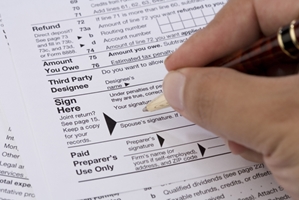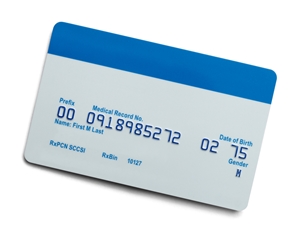
Several years removed from the effectuation of the Affordable Care Act – legislation that ran into a number of starts and stalls when it first went into effect due to poor implementation protocol – the health care law is still experiencing more than a few hiccups. This has led to compliance deadlines being pushed back to accommodate for the delays. The latest one affects business owners, specifically the one that requires corroborating whether they're providing employee benefits to their full-time employees.
On Feb. 1, large business owners – which for the health care law's purposes are defined as those who employ 50 or more people working at least 30 hours per week – were to provide the Internal Revenue Service with filled out 1095-B and 1095-C forms. These detail the type of health care coverage workers have. Due to unforeseen circumstances beyond the government's control, however, that deadline has been changed, as reported by HRMorning.com. The new cutoff is March 31.
Mark Iwry, senior advisor for the U.S. Department of Treasury, didn't get into what, exactly, the reasoning is for the deadline delay, other than to say the government wishes to "make the system work as smoothly as possible," according to HRMorning.com.
These aren't the only forms that business owners have more time to file, either. For those who wish to fill out paper forms – specifically 1094-B and 1094-C – that deadline is May 31, more than three months later than its previous due date of Feb. 29.
Paper form deadline postponed to June 30
Additionally, for companies who have a large number of forms to fill out, they'll have even longer to take care of this compliance protocol. HRMorning.com reported 1094-B and 1094-C e-filing forms – for businesses with at least 250 forms to submit – don't have to be sent in until June 30, nearly three months to the day from the former deadline of March 31.
Since the ACA's implementation, much of the discussion regarding the penalties of not complying with the health care law has centered on individuals. Non-compliant businesses must abide by the legislation as well. For companies with 100 or more full-time equivalent employees, at least 95 percent of them must be offered health insurance this year. That's up from 70 percent, which the law required in 2015. Businesses can be docked $2,000 for each worker who doesn't have access to employee benefits.
Slim majority support government ensuring health care access
Though the American public is decidedly split on the wisdom of the Affordable Care Act, a slim majority believes the government ought to ensure Americans have an outlet for health insurance, according to a poll conducted by Gallup late last year. For the first time in the poll's history – which has been conducted in 2008 – over half of U.S. adults say the federal government has a responsibility to make health insurance available to all Americans at 51 percent.
At the same time, though, most consumers still believe the private health insurance system is better than what the government provides. Given the option, 55 percent say they prefer coverage from a private health carrier, Gallup reported from the survey, while 41 percent favor a government-run health care system.





